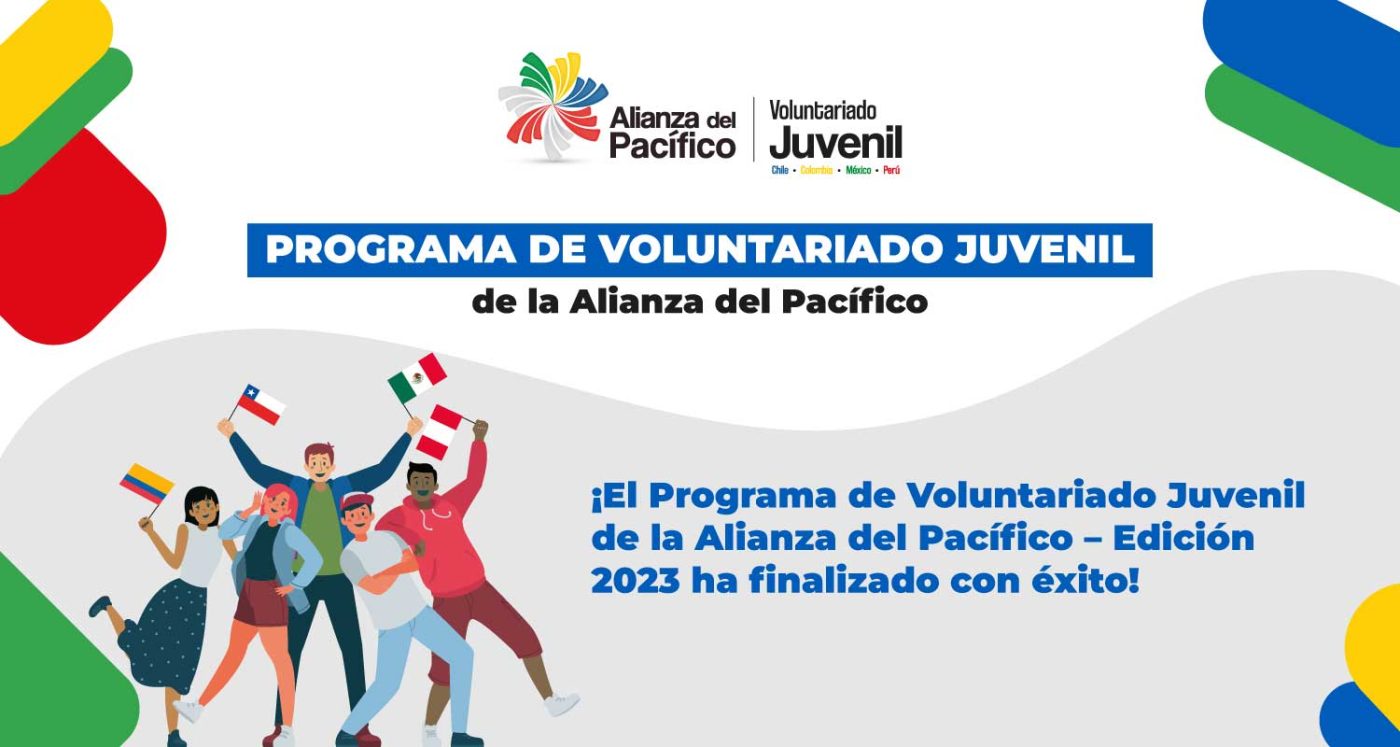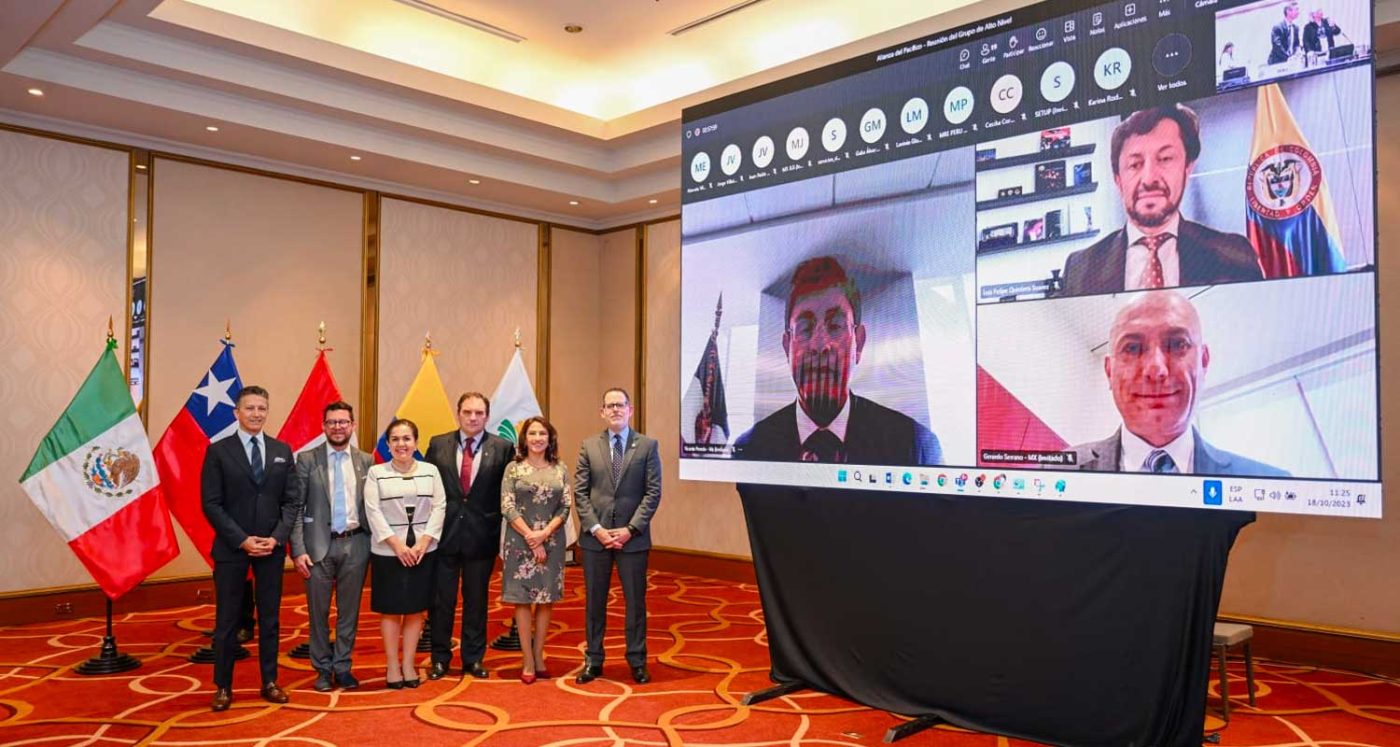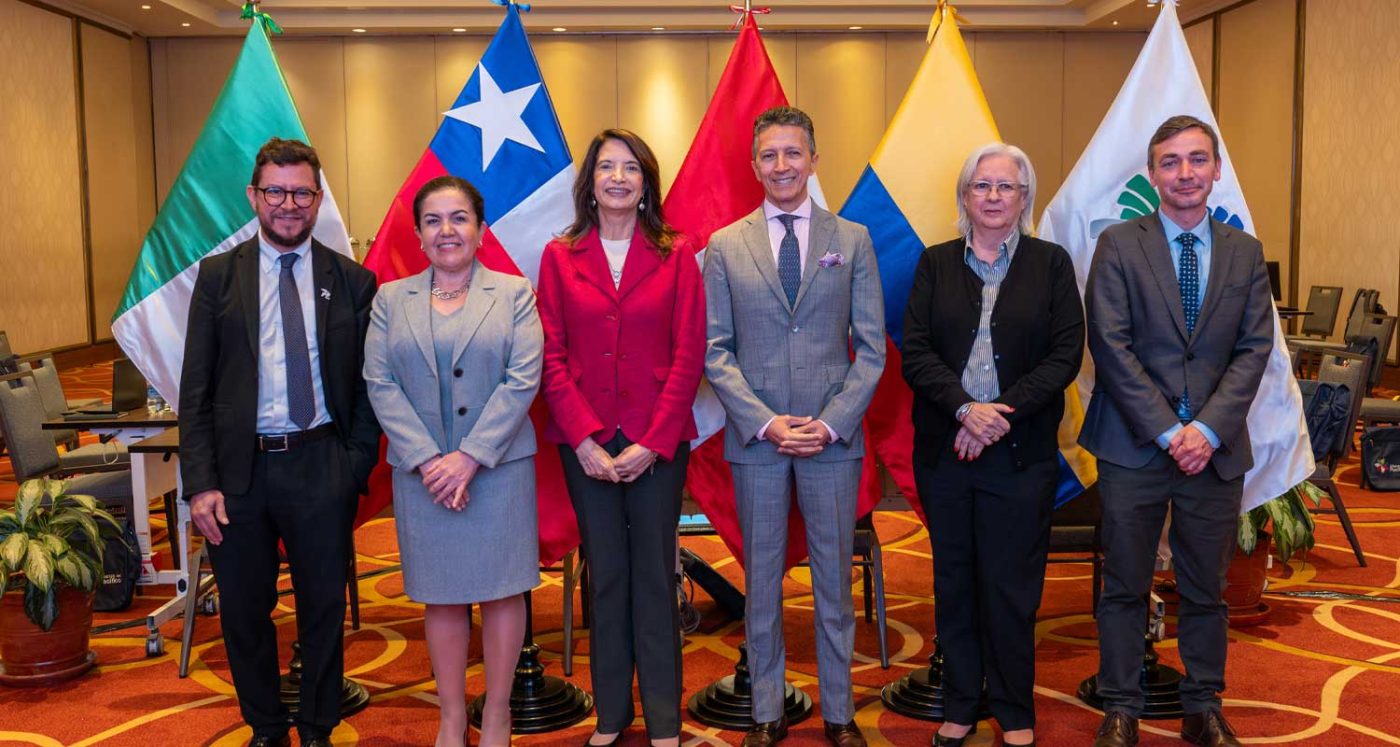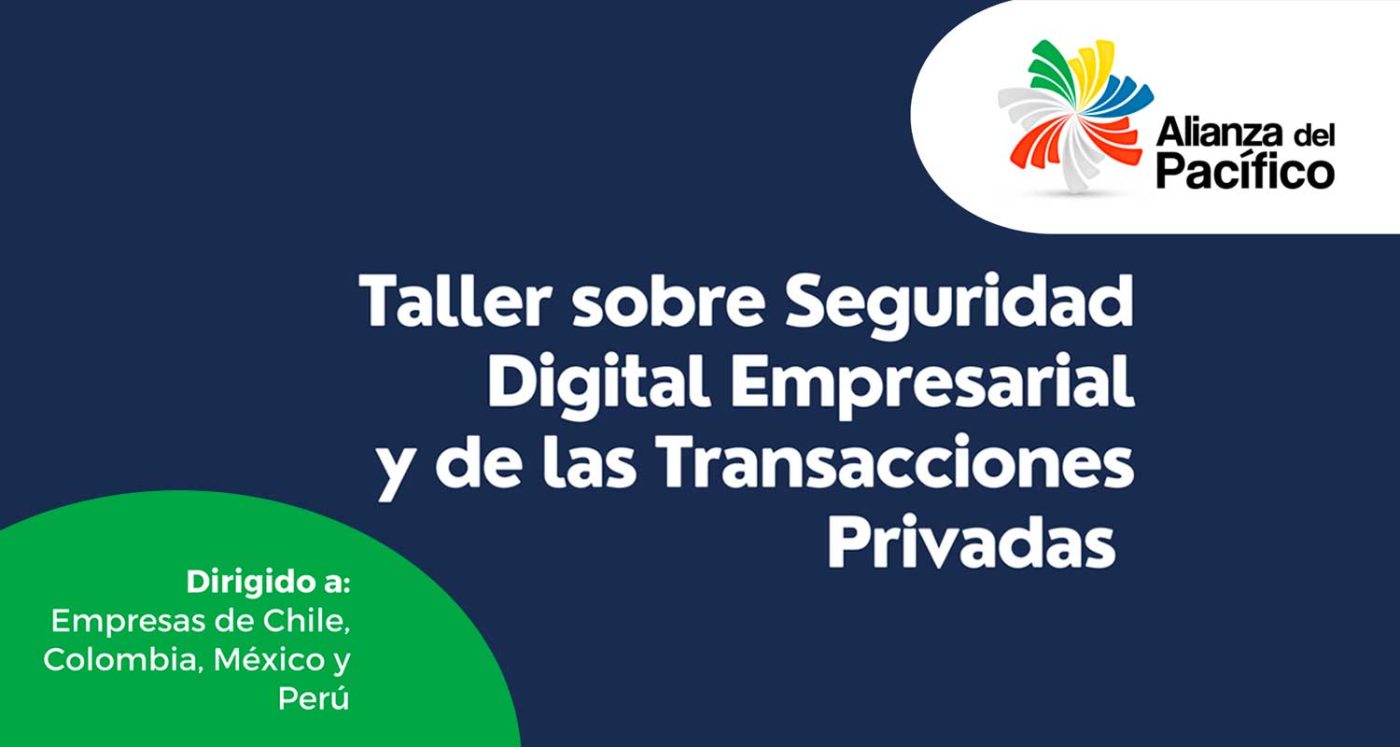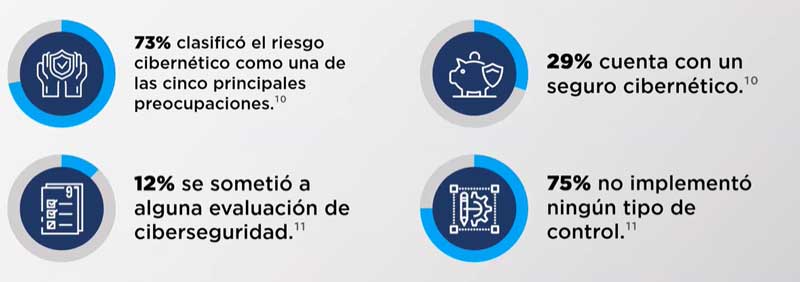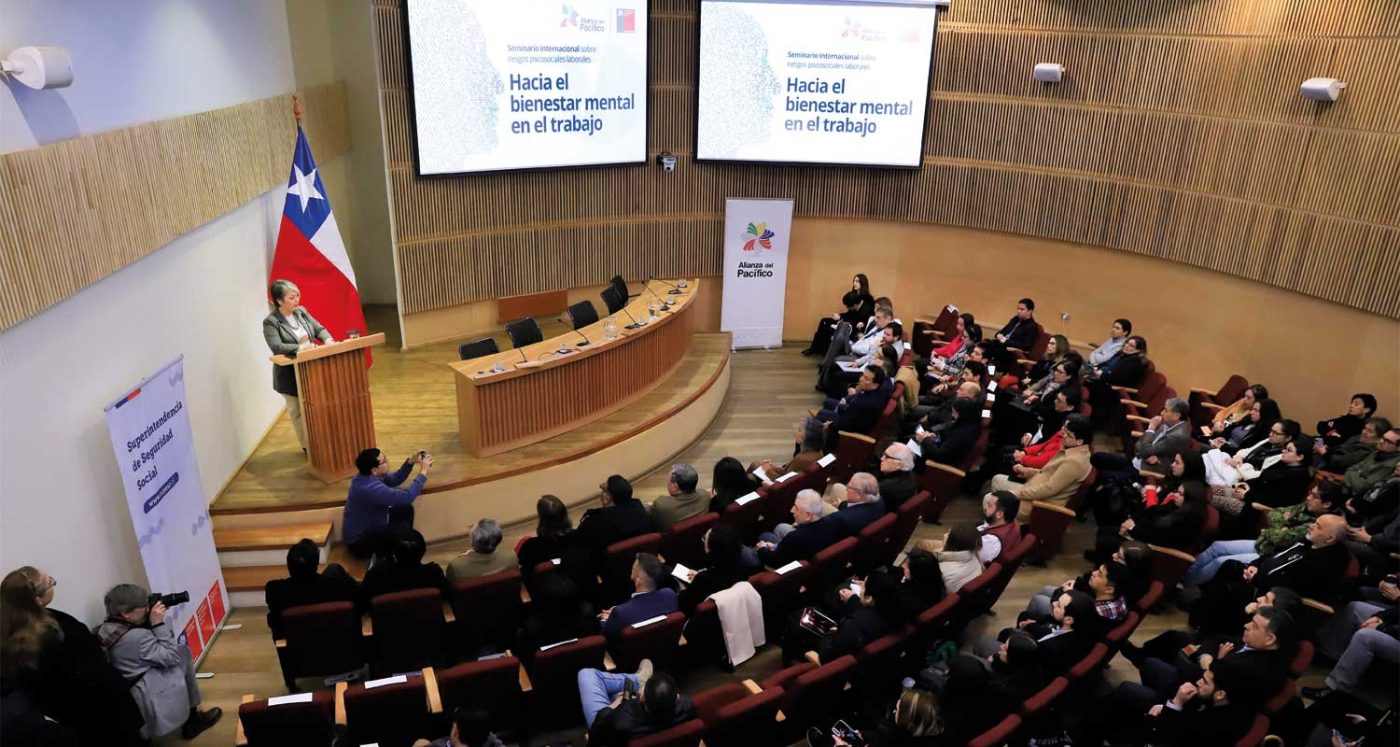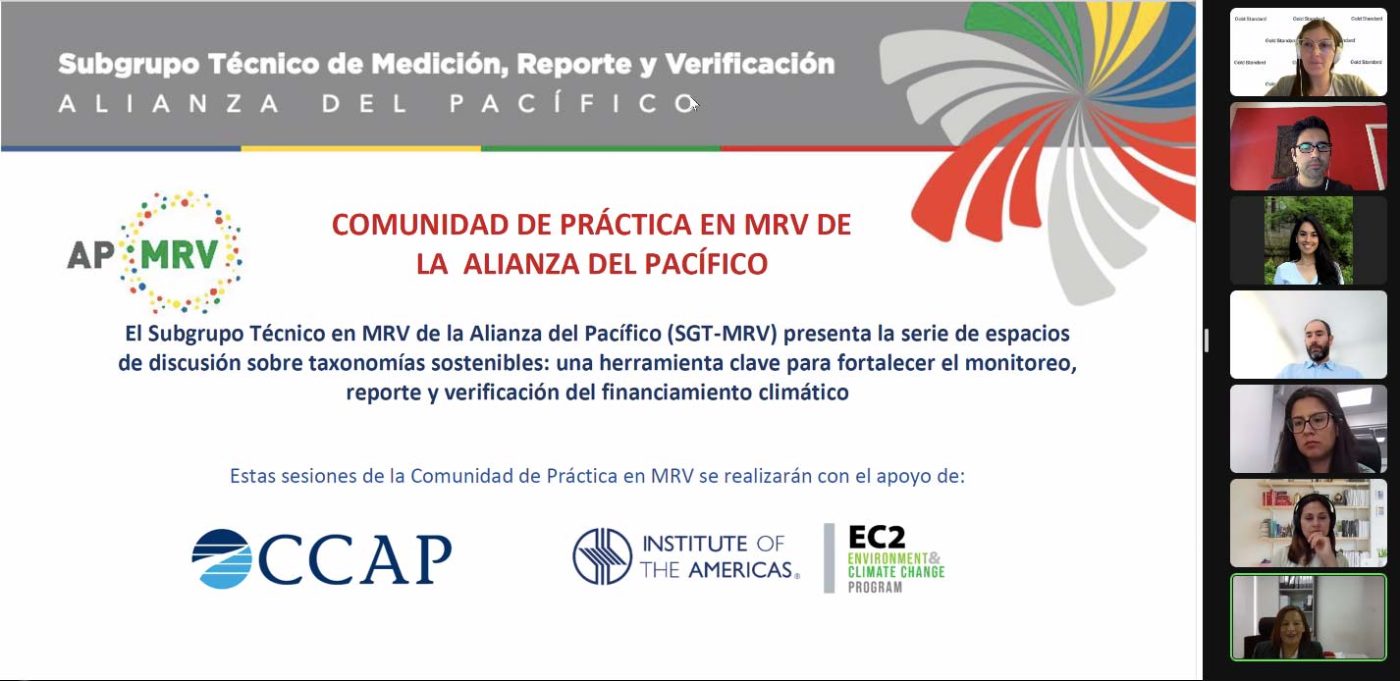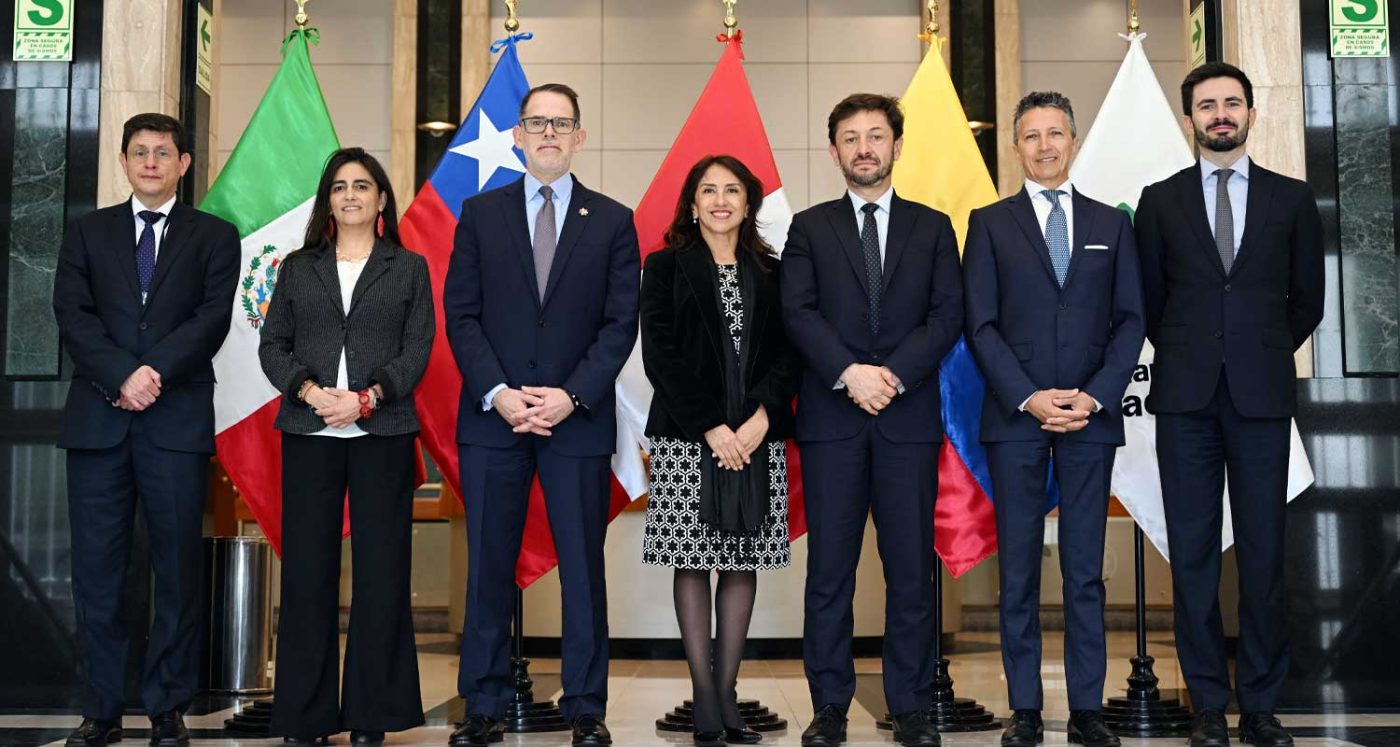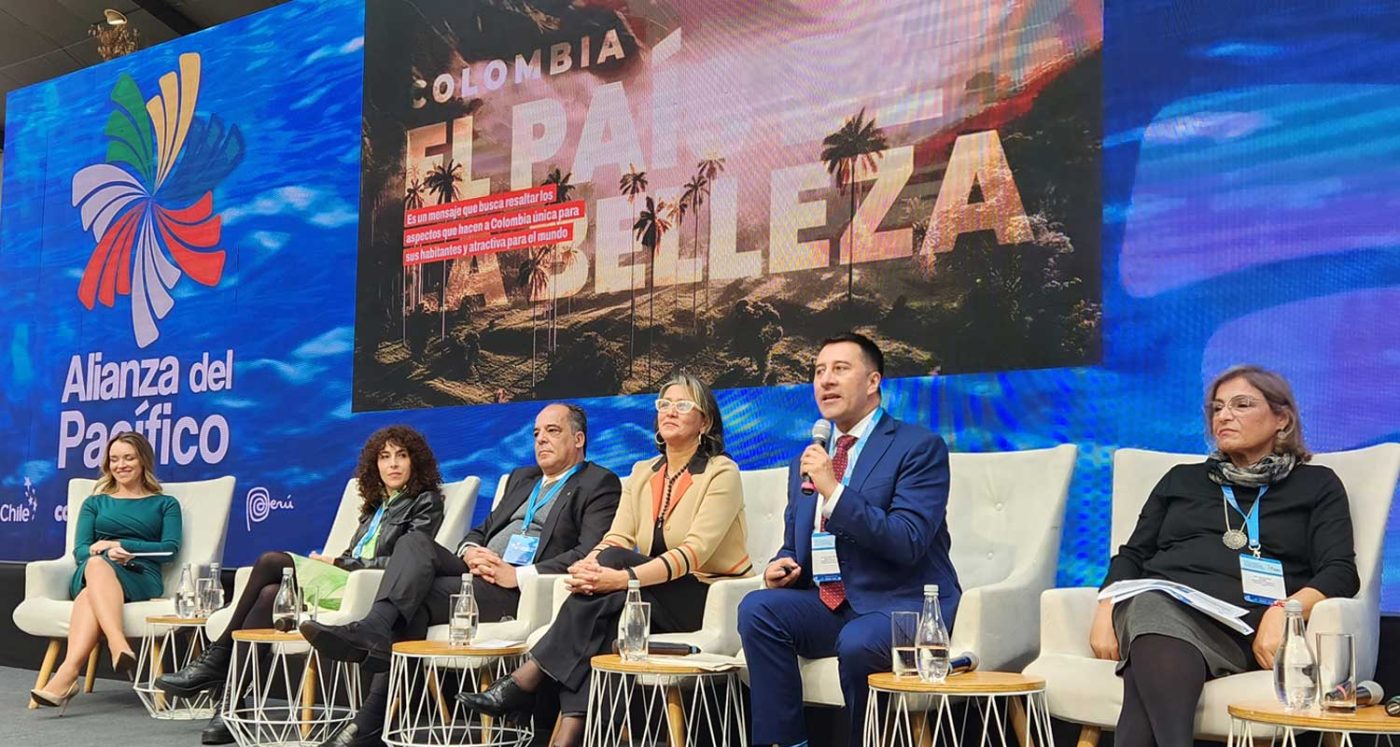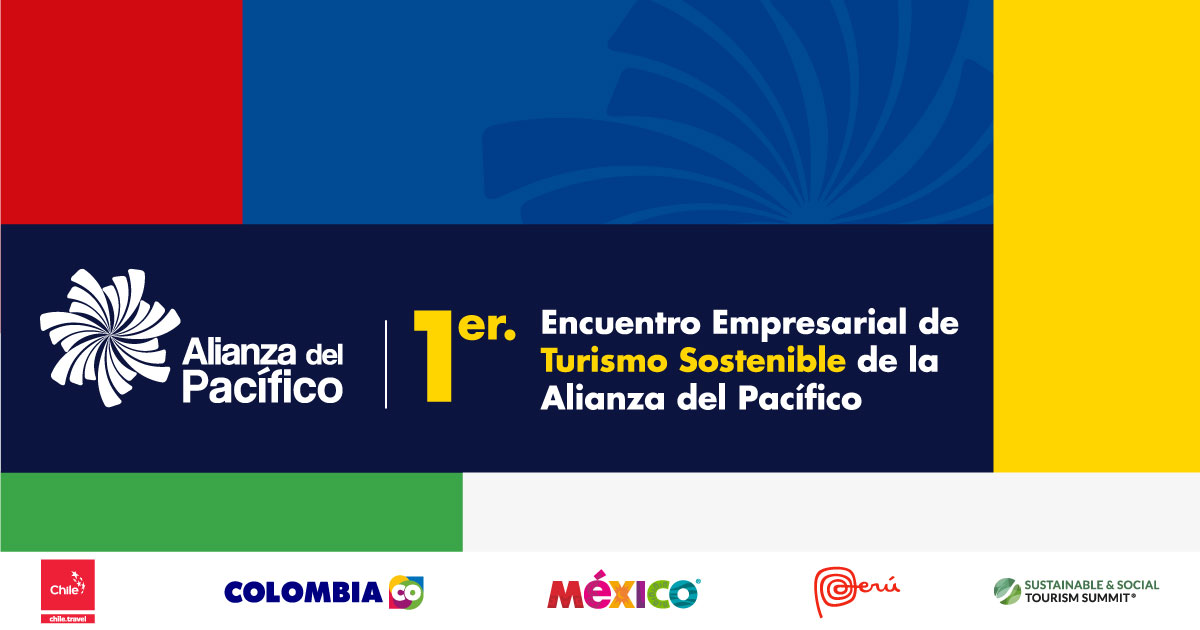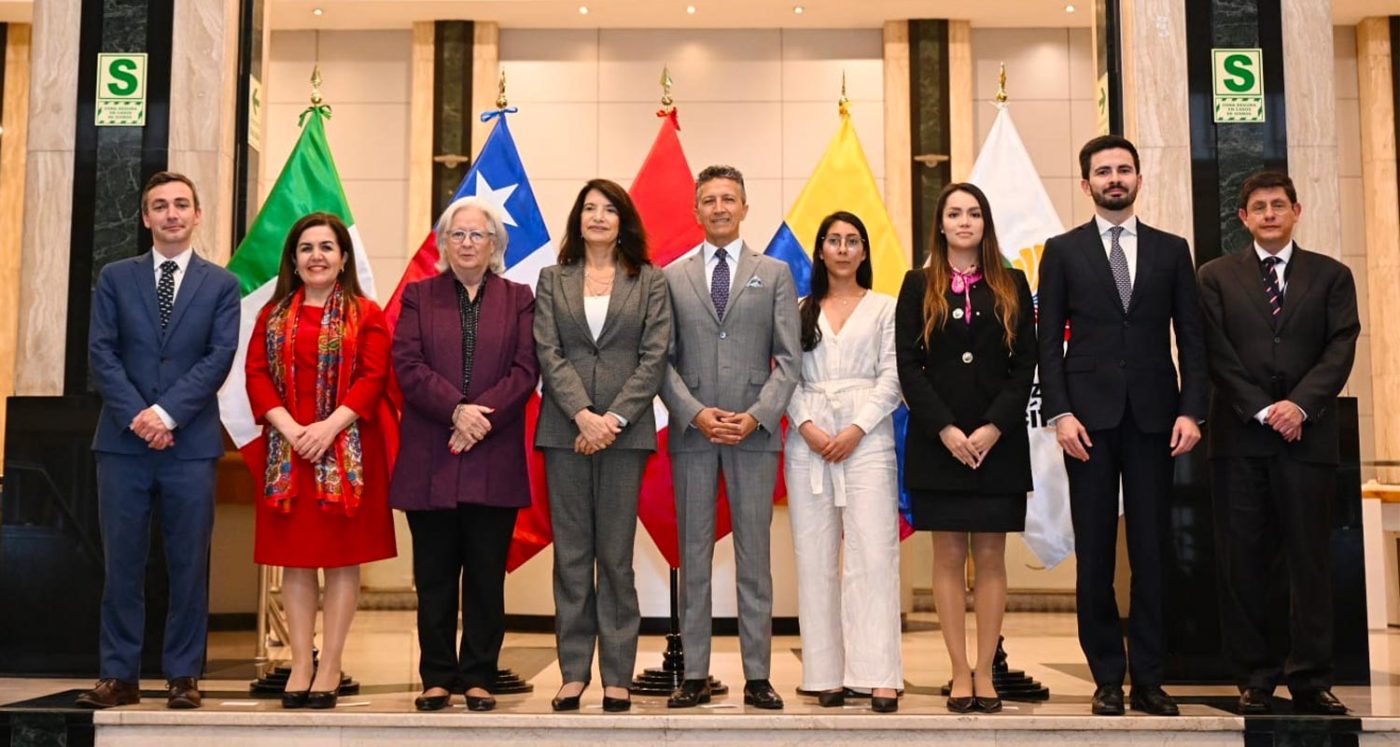- A space to learn about the best of the sustainable tourism offerings of Chile, Colombia, Mexico and Peru, identify synergies and establish strategic alliances.
September 4, 2023.- Within the framework of the Tourism Cooperation Agreement of the Pacific Alliance, the entities responsible for the promotion of international tourism of the four countries – National Tourism Service of Chile (SERNATUR), PROCOLOMBIA, Secretariat of Tourism of Mexico (SECTUR), and PROMPERÚ – on August 17, 2023, the 1st Sustainable Tourism Business Meeting of the Pacific Alliance ended.
On August 9, the 1st Sustainable Tourism Business Meeting of the Pacific Alliance was inaugurated with words from Claricia Tirado, director of Tourism Promotion of PROMPERU, in her capacity as pro tempore presidency of the Pacific Alliance, where she indicated that: “for the Pacific Alliance, tourism is a very important sector due to its great relevance in the development of the countries and its significant influence, directly and indirectly, in the lives of millions of people in the world. To speak of tourism is to mention its great potential for economic growth, due to its capacity to generate employment and its compatibility with nature, the environment, and its social surroundings”. During the inauguration, the final video of the joint Promotion Campaign was also launched, published on the Pacific Alliance YouTube channel (https://youtu.be/neSwloXaoFc), which was presented by PROMPERU’s Director of Tourism Promotion: “… this video invites us to travel, to discover and fall in love with an Alliance full of magic, biodiversity, adventure, customs, gastronomy and traditions of tailor-made experiences”.
This was followed by the Academic Agenda, where Vicente Ferreyra Acosta, Vice President of Sustainable Tourism of the Sustainable & Social Tourism Summit (SSTS) gave a keynote speech entitled “Sustainable and Regenerative Tourism, an opportunity for regional development”, which was attended by more than 130 people, including outbound and inbound businessmen, experts and the general public, in which Vicente Ferreyra emphasized: “We have learned that without sustainability and regeneration it will be difficult for us to have a desirable future and without a future there is no tourism, so we have a very important responsibility, we have an open opportunity to enhance these aspects in a much better way, together as an alliance with common markets, with common positions, which I invite you to reflect on and move forward together. And we also have a very interesting opportunity to develop business, to develop products, to develop promotion with a focus on these issues, which in reality is little done but as an alliance we could position ourselves in that sense.”
The day ended with Fernando Mandri, president of the Sustainable & Social Tourism Summit, where 20 inbound tourism companies from Chile, Colombia, Mexico and Peru were trained in the construction of their value proposition in terms of sustainability through the preparation of their Business Pitch; this space allowed entrepreneurs to improve the sales pitch of their products with a high sustainable impact, which will enable them to generate more effective business meetings that will result in closing business deals for our entrepreneurs and beyond that, that together – Chile, Colombia, Mexico and Peru, we contribute to one of the priorities of the 2030 Agenda for Sustainable Development of our countries.
The activities continued on August 16, where 19 inbound companies from the 4 countries that make up the Pacific Alliance, presented their value proposition to experts and outbound entrepreneurs, in a novel activity of pitch sessions where they received comments from the panel of experts in sustainable tourism; Beatriz Román Alzerreca, deputy director of Development of the National Tourism Service of Chile; Laura Durana Posada, who heads the Colombian Association of Responsible Tourism – ACOTUR; Sergio Rodríguez Abitia, president for the Americas of the International Social Tourism Organization (ISTO Americas, Canada), advisory councilor to both the Conservatory of Gastronomic Culture of Mexico and the Association of Food and Regional Cuisines of the Americas (Argentina) and vice president for Social Tourism of the Sustainable & Social Tourism Summit and the Ibero-American Summit on Accessible Tourism; and Francisco Basili, president of the Peruvian Association of Adventure, Ecotourism and Specialized Tourism (APTAE). In addition, in this space, about 20 outbound businessmen participating in the event made their requests for meetings according to their interest in the proposals presented through the pitches for the day of August 17.
In the last stage of the Meeting, 1-on-1 meetings were held between the outbound and inbound businessmen who participated in the pitch sessions the day before. These meetings were held in parallel in 9 sessions of 25 minutes each, where 80% of the scheduled and accepted appointments were made, highlighting that 89% of the companies that participated were meeting for the first time with the buyers present at the event, according to the results of surveys to outbound businessmen. Some of the appointments did not materialize because, at the time they were made, there was a strong earthquake in the city of Bogota, Colombia, so the companies involved were contacted to reschedule the appointments and maintain the business relationship. It should be noted that, according to the responses to the surveys after the networking session, the main products of interest were Vacation, focused on Culture, Gastronomy, History, Archeology, Nature and Adventure in the destinations of Chile, Colombia, Peru and Mexico.

